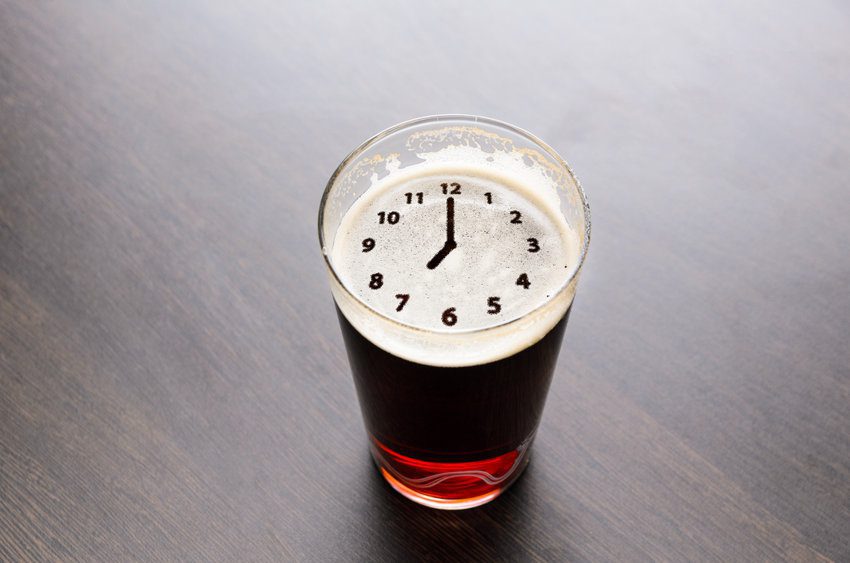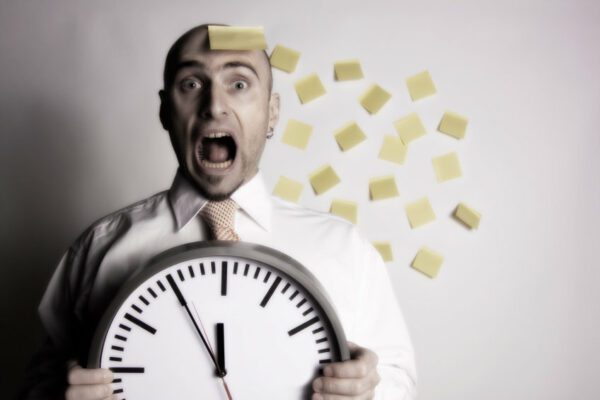From The Stuff Behind The Stuff™ Vintage Archives, here’s an updated post from back in 2018 that got some nice attention and interaction. So grab your favorite cup or glass, and join us in a fresh discussion!
__________________
I don’t know why it still surprises me when someone tells me they never use any sort of a calendar or planner. Perhaps it’s because I have never been able NOT to use a calendar, and admittedly I am a bit time-obsessed, but still…how do people keep it all in their heads?
I think the short answer is, most of them don’t*. At least not past a certain age. I don’t mean that comment from a “senior moment” perspective but more from the view that as we get much past high school life starts getting in the way – there are just too many things to keep track of, plan, and act upon. Our heads really aren’t designed to hold every single piece of information they encounter, and if we don’t make some sort of conscious effort to choose how to retain what we need, we get into trouble.
One of my favorite scenes from one of my favorite shows, Sherlock, details the famous detective’s conscious decision to get rid of an unnecessary (to him) piece of information – in this case, the fact that the Earth travels around the Sun:
Sherlock (in response to John Watson’s disbelief): Oh God, that again! It’s not important!
Watson: Not important?! It’s primary school stuff! How can you not know that?
Sherlock: Well, if I ever did, I’ve deleted it.
Watson: “Deleted it”?!
Sherlock: Listen [points to his head], this is my hard-drive, and it only makes sense to put things in there that are useful. Really useful. Ordinary people fill their heads with all kinds of rubbish, and that makes it hard to get at the stuff that matters! Do you see?
Watson did not win that argument, but is Sherlock really so wrong? While the appointments we jot down in a central location may not exactly equate to “rubbish”, the practice does allow our brains some room and opportunity to focus on other, in-the-moment issues. Then too, critical times and dates can easily get knocked out by other brain “rubbish”, like the distraction of a new season of your favorite show. You’re sitting at home binging The Queen’s Gambit when you should be making your dermatology appointment, or a meeting at school, or leaving for your shift.
My husband often tells the story of how he never used a calendar in college — until the fateful day when he discovered that he had booked himself for two gigs at the exact same time. The two commitments were retained in his brain, and he’d been to rehearsals for both. But the dates and times they were connected to, for whatever reason (pondering midterms, after-game parties, slogging through a music history test, whatever) were not retained – lost somewhere in the downloads. Not a pretty result, but an excellent (if painful) learning opportunity. From there on out a planner became an essential tool.
Model (not actual husband)
I recently illustrated it to a client another way: appointments and tasks need a container. Let’s say that container is a glass, and you pour all your commitments into the glass. The glass gives those commitments a place to hang out until they’re needed. It gives the schedule some shape. It’s transparent, easy to handle, easy to get those commitments back out when it’s time. You can choose what goes in, and what to dump (delete?) down the drain. If you leave the commitments in there too long, they might go flat, so you have to check back frequently and sip from the glass from time to time. If you don’t use a glass at all, your schedule just splatters all over the place and makes a huge mess for you or someone else to clean up. Sipping from the floor or a countertop is not efficient or pleasant.
Maybe a boring, clear glass isn’t your thing (or should I say – ha – “cup of tea”?). Perhaps it’s a carafe, a jug, a stein, a hollowed-out gourd. It matters not. Whatever you choose to pour your schedule into just needs to be functional and appropriate for you. Your calendar container might be digital, physical, 3-ring, spiral bound, weekly, monthly, etc. – if you have gone years without one, you might be surprised at all of the current options. Don’t let the myriad choices become more brain rubbish: you just want it to be easy to plug things in and get those things back out when you need them.
What sort of time container could work best for you?
*As I type this post I’m steeling myself for the comment from at least one reader who gets away with never using a planner. You are exceptional, but give me a shout when it all comes crashing down. I’ll be here for you.





I like the image of the glass container for time commitments and the one that springs to mind for me is a pill box.
Mine has compartments for morning, afternoon and evening (I take a lot of vitamins!) and so does my day. There’s morning slot, an afternoon slot and an evening slot.
I’ve divided my planner squares into three sections to help me keep to this. If the morning slot is full, with an appointment or a planned thing I’m going to do, that part of the square is full and I can’t write anything else in it, which means I can’t add anything else to my schedule.
This is easiest to do with a paper planner, but I’m betting there’s a way to do that digitally too.
So when I’m tempted to schedule things back to back or at the same time – I feel for your husband, what a learning experience THAT was – the visual reminder that that time slot is full has helped me keep my schedule manageable.
I’m liking this pill box idea…taking what’s healthy for you and assigning it to a spot in the day. You’re so right – if it’s full you can’t cram more in. And as for digital vs. paper (I always wonder about the tension there – why not use both?), could something like Google calendar would get you where you want to be?
“Appointments and tasks need a container,” that is so good! Everything needs a place to live, and our brains are really just too full to hold these items in a reliable way. I don’t think I could make it through a day without my calendar LOL! It’s a treasure to me. 🙂
I’m kind of in love with my planner(s) as well. Always there for me. 🙂
Oh, Sara, I love this post (and Lucy’s metaphor with the pill box). I always feel that having a “home” for our appointments and obligations gives a framework for the time non-specific things we need to do. Putting each thing into a container tells you when you have more things than containers (on a specific day) or when your containers are unbalanced (think: a closet rod with everything on the left of center). I’m a fan of a hybrid system: a paper planner so that you can SEE everything you’re expected to do and visualize your time obligations, and a digital system to prompt you with auditory reminders. I’m raising my glass to you!
Thanks, Julie (“clink”)! I use my paper planner on Sundays, to get oriented to the week/month. So I guess that’s like my special teapot I pull out to savor everything. Then I use Google calendar (and my scheduling software) daily, so maybe that’s more of a coffee mug – the thing that delivers my daily jolt of energy. OK, I think the metaphor has run its course now…thanks for the comment!
You don’t have to convince me about the value of a calendar or planner. I like the container concept, but as an organizer, I guess that makes sense. Because who among us doesn’t love a great container? I have no desire to keep all the information in my head. I want my brain to be available for other things, feelings, sensations, and interactions. And if I’m preoccupied with worrying about a missed appointment or if I HAVE an appointment, I’m not going to be able to focus on the present. Not good.
I’m a visual person, so for me, my digital calendar allows me to color code categories and see my time a week at a glance. I love that! I work the calendar with my to-do list. The other elements I use to help keep on track are timers (auditory and visual.) I set them to help me transition from one project or appointment to the next. It’s like someone tugging at my sleeve going, “Linda, it’s time to stop what you’re doing to get ready for next.”
So I guess it’s a matter of not just one container, but perhaps an entire wine glass collection with each glass serving a different function. But together, that make up a beautiful place setting. Cheers!
Wow, your time and tasks have quite a lovely grouping in which to live! It’s much more inviting to think of them in this way than just a boring old Day Timer. Thanks for stopping by, and cheers to you as well Linda!
This reminds me so much of the Get It Done system. One of the key components is to write down everything…EVERYTHING…that floats in your head, and then process that information when you are done with your task. This means dates get added to a calendar or planner so you no longer have to rely on your brain to remember all the details.
What a great way to conceptualize how necessary some kind of “dumping ground” for information is! Keeping a calendar really does give your brain a break, and more space to react calmly to immediate situations.